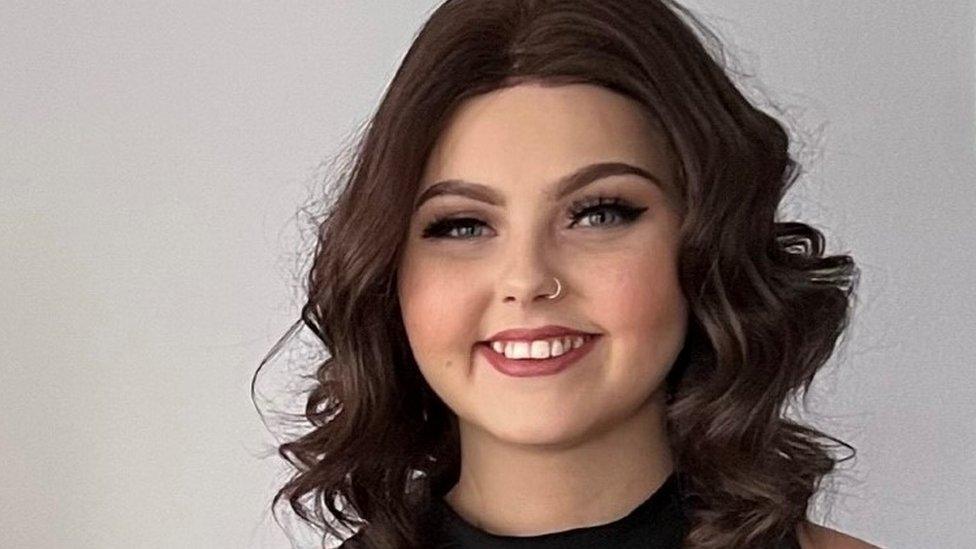'I want more people to know what radiographers do'
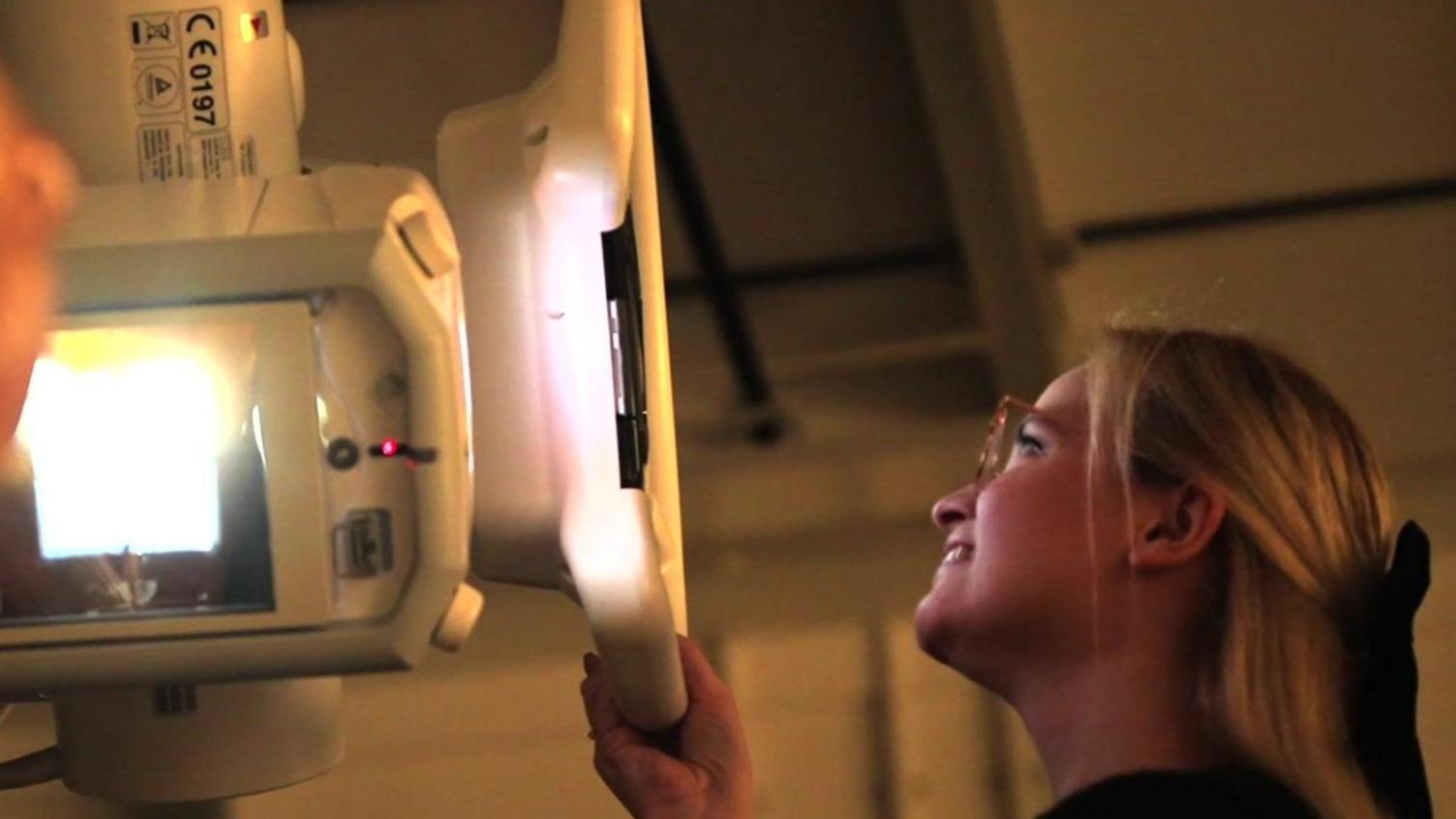
Jo Shuttlewood-Limb wants to encourage other people to take up radiography
- Published
Medical professionals who carry out scans such as X-rays hope to inspire young people to enter the industry by highlighting the importance of their work.
Jo Shuttlewood-Limb and Chris Cobb are both radiographers and also work as radiography lecturers at the University of Suffolk in Ipswich.
They want more people, especially young people who are deciding on their future careers, to be aware of what the profession can offer.
They said the role was key in the early diagnosis of diseases and more people entering the career could help bridge a shortfall of radiographers within the NHS.
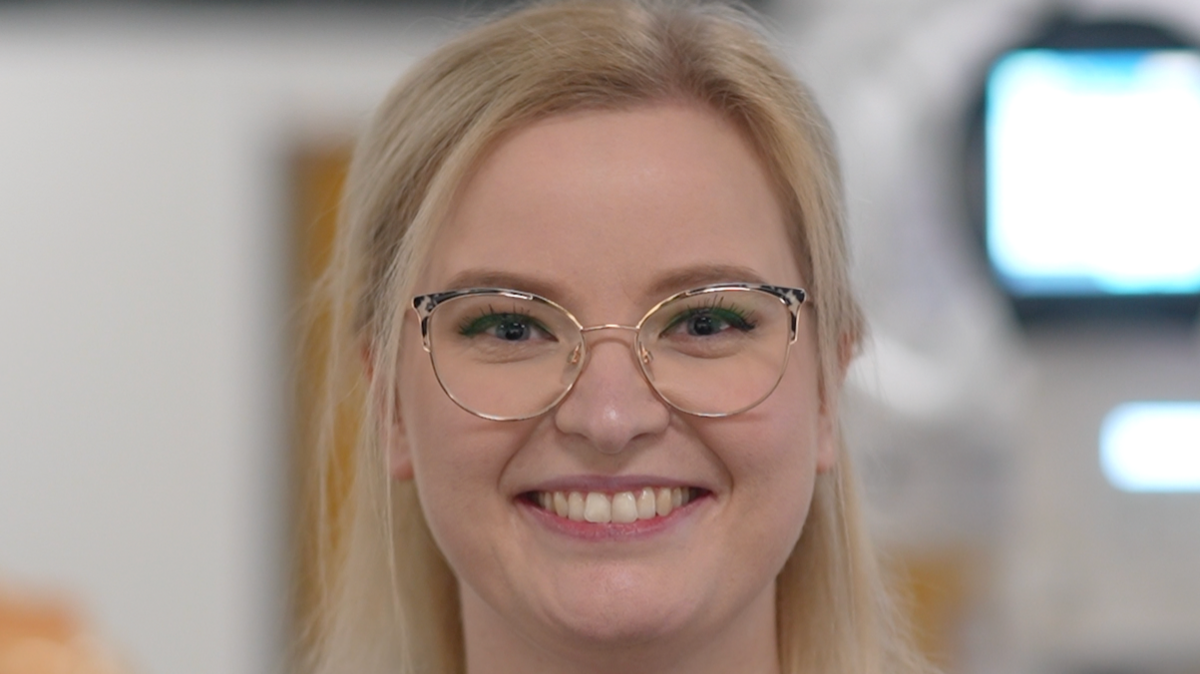
Ms Shuttlewood-Limb said it was key the NHS was supported to help on the student placement schemes
"I don't think most people grow up necessarily wanting to be a radiographer so our 18-year-old school leavers aren't thinking about radiography first," Ms Shuttlewood-Limb explained.
"To try and get in front of them we've been trying to post on social media, we've been X-raying some random bits and bobs and getting people to guess what they think it is and the next day releasing the answer to some strange things."
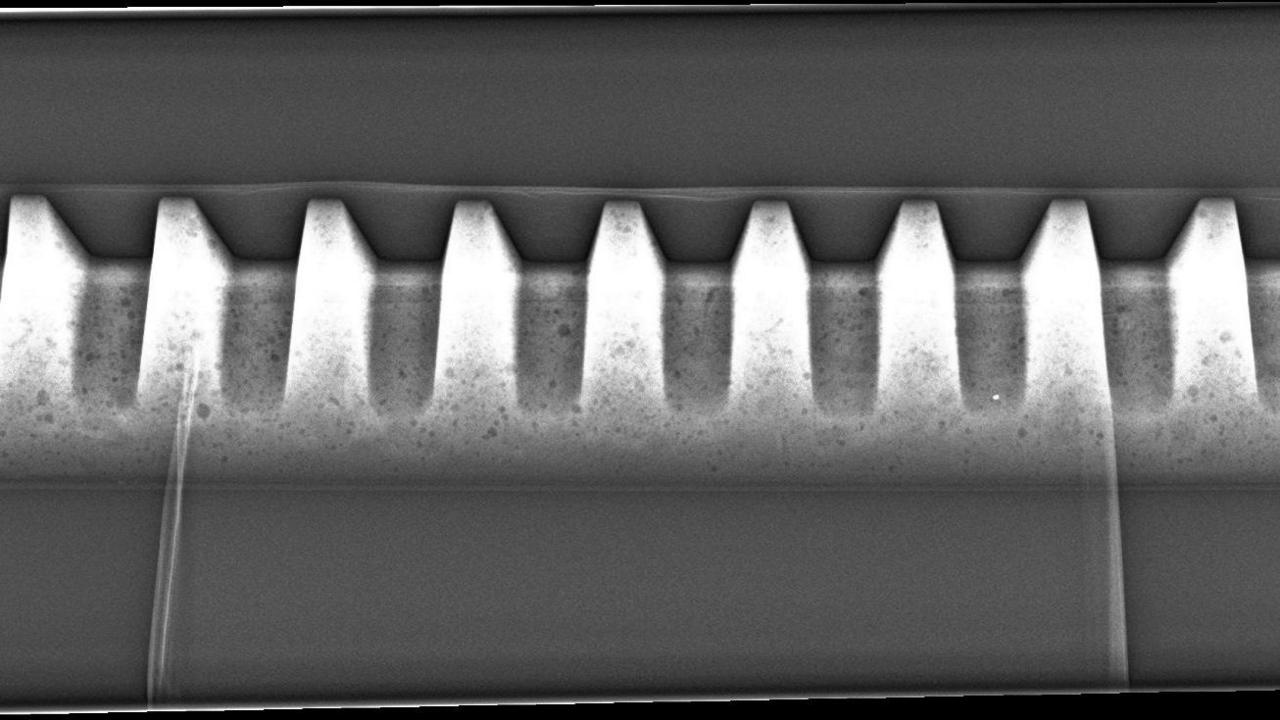
A Toblerone chocolate bar is one of the items pictured on an X-ray machine by the university
Students at the University of Suffolk are trained to use X-ray machines and take up placements in hospitals.
Eleven placement sites are available for students where they train with NHS staff.
The profession is crucial and can help diagnose diseases early and in turn prevent them from returning, said the radiographers.
According to Ms Shuttlewood-Limb, nine out of 10 people that go into hospital come into contact with radiographers.
She added that she loved her job and believed the career "deserves recognition".
"People need to know who we are," she continued.
"We train for a long time, we all have a degree, we are registered professionals so getting people to know actually who we are is really important."
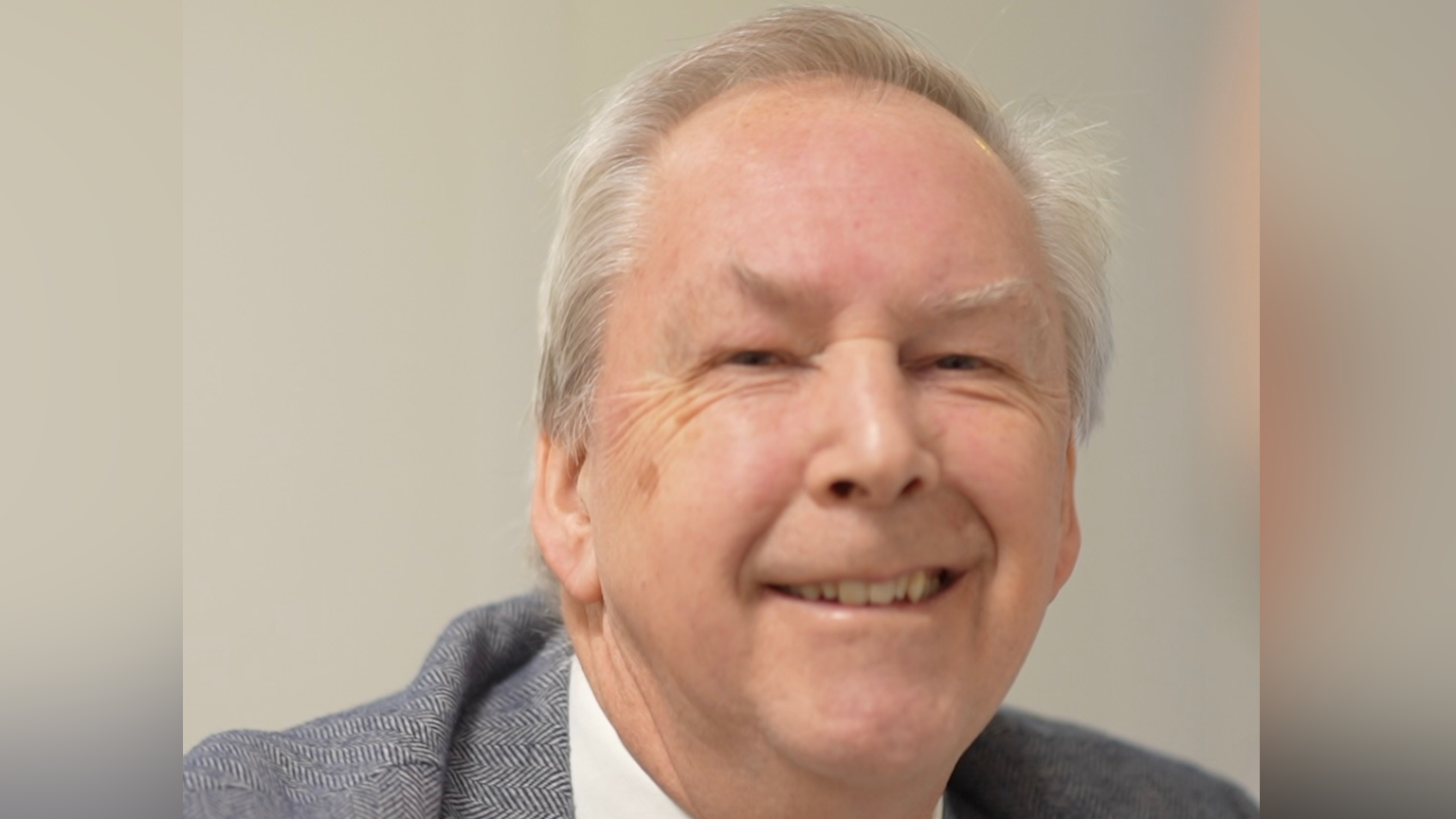
Chris Cobb said scanners could help accelerate patient's treatments
Mr Cobb said radiography had changed a large amount since he first started his career.
"When I started it was all film based and now it has progressed to digital imaging," he explained.
"CT scans were rare, MRI didn't exist, ultrasound was in its infancy and now, of course, it's the mainstream for scanning and diagnostic tests throughout the whole of the NHS."
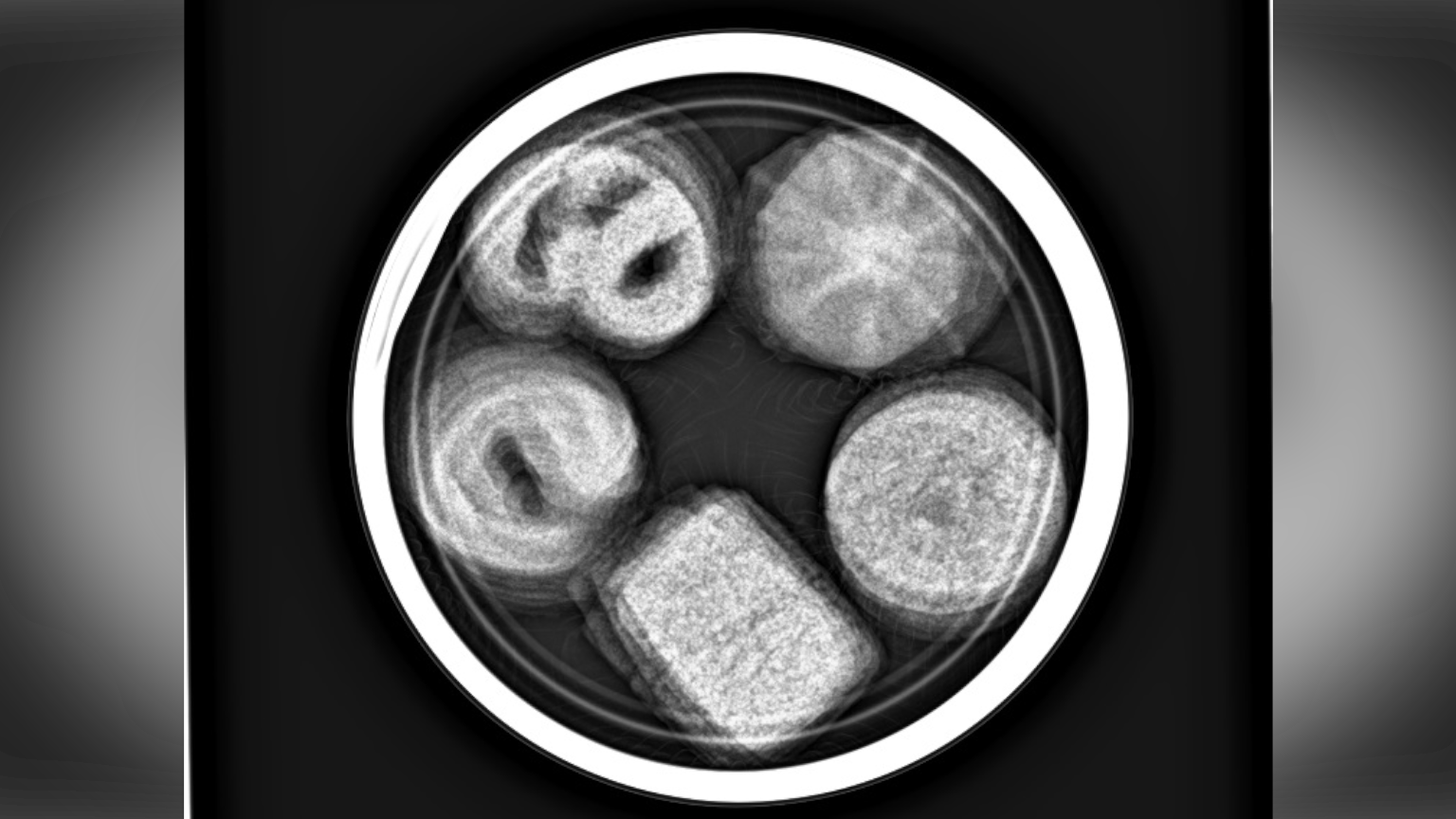
A biscuit tin with biscuits inside was also pictured on an X-ray machine by the university team
Mr Cobb said by encouraging more people into the profession it could help address the backlog of patients waiting for scans, which has been seen since the Covid pandemic.
"It's a person-centre profession that helps people, we need more [radiographers]," he continued.
"Early diagnosis is essential and the tools that we offer in diagnostic radiography can provide that service.
"It's going to be crucial to detect disease like prostate cancer for example.
"It's essential that we diagnose early and get that treatment in, to cope with the backlog of patients who are still waiting particularly post-Covid."
Get in touch
Do you have a story suggestion for Suffolk?
Follow Suffolk news on BBC Sounds, Facebook, external, Instagram, external and X, external.
Stories like this
- Published22 October 2024

- Published3 August 2024
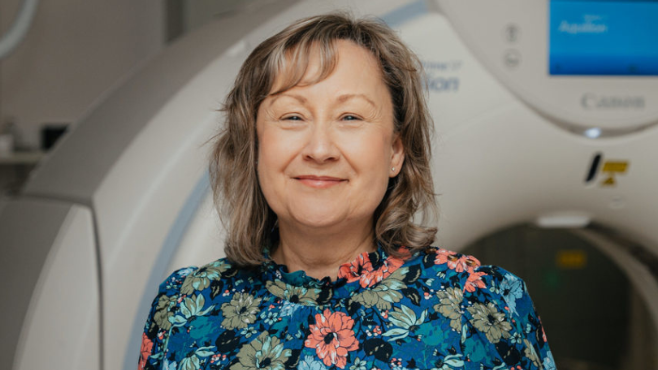
- Published7 April 2024
